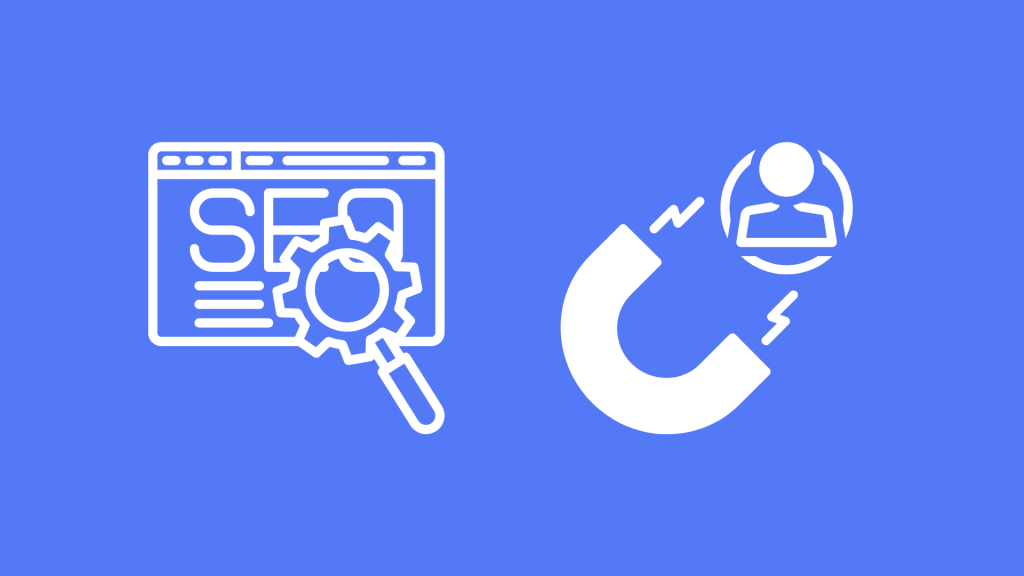It’s no secret that lead generation is crucial in establishing a successful business, no matter what it may be. You could be manufacturing tortillas or creating innovative dog chews, but one necessity across all businesses is that you need customers in order to grow.
The key role Search Engine Optimization (SEO) plays in lead generation should not be understated. Although separate concepts, lead generation and SEO can be used simultaneously to create an effective marketing strategy and drive growth, especially in our current digital-obsessed era.
SEO is all about refining and adjusting webpages to improve their rank on search engine results pages, so it’s significant within any business to increase online visibility and drive organic traffic to your website. We all know scrolling to the second page of Google searches is unlikely, so getting your website in the top rankings is crucial!
So, while it’s widely known that lead generation and SEO are important, how can these concepts be used together to effectively generate custom?
What is lead generation and how does it help your business?
Before we delve any deeper, we must be confident in our understanding of what lead generation is and why it is so important.
Lead generation is the process of cultivating interest in your business to attract potential clients (leads). Whether it’s through email campaigns, print advertising, or social media, lead generation is the strategy that regularly provides your business with quality, reliable custom.
It might sound obvious, but every business requires leads to not only succeed, but survive. Think about it: if no one is buying your product or service, your business can no longer function. So, it goes without saying that the benefits of lead generation are endless; but most importantly, it facilitates significant growth.
How are SEO and lead generation connected?
You might find yourself wondering how SEO and lead generation are connected. On the other hand, you might think they’re different names for the same thing.
Let us clarify. SEO focuses on adapting a website so that it ranks higher in search results, with the vision of driving traffic to your site, whereas lead generation is concentrated on increasing the number of clients and prospects for your business.
The connection between the two comes down to the impact SEO has on lead generation. As we’ve already covered, SEO increases organic traffic to your website and this complements lead generation by finding potential clients.
In other words, the more visible your website is on Google (achieved through SEO), the easier consumers can find you (lead generation).

7 SEO tips to help with lead generation
This blog promised some simple ways to optimise your website, so now that we’ve defined SEO and lead generation, here are some practical tips for how to do so:
1. Check your website’s health
Most of us can recall a time when we were recently unwell, but when was the last time you considered the health of your website?
Probably a long time ago, but it’s more important than you think.
There’s nothing more annoying than a slow-loading website, or clicking a link only to be met with the message ‘page not found’. In fact, it’s more than annoying – it can discourage traffic altogether.
Looking after your website’s health is about using a reliable provider, fixing broken links, removing unnecessary or duplicate content, and if possible, increasing your website’s speed. Perhaps speed is the key to success; the quicker your site responds to a search, the higher Google will rank it.
Known as technical SEO, this process eliminates technical issues that could impact search results and ensures your website is easy to navigate – an increasingly important factor in search rankings. For instance, Google’s Algorithm Speed Update, rolled out in June 2021, introduced three new metrics that measure and subsequently rank sites, based on their user experience.
2. Do keywords research
If you’re already familiar with SEO, it’s inevitable that you know all about keywords. But for those that don’t, keyword research is about finding terms or phrases used by people searching for particular services, products, or information.
Knowing the keywords in your industry or sector means you can use them to your advantage, making sure your website’s content is relevant, up-to-date, and mentions keywords.
How does this link to lead generation? In short, Google determines the subject of a website through these keywords and ensures it ranks well in your target audience’s search results, increasing your website’s visibility.
3. Build links
If your website is not already link-building, start now!
Link building means incorporating both external and internal links within your website to help search engines crawl between either entire sites or individual pages on your own website.
Internal links, like this one, signal which pages on your website are most important, so that Google can direct traffic directly to these pages. It also keeps users on your site and makes it easier to navigate – and we know that user experience is an influential factor in your search ranking.
Although you might think external links aren’t useful, they actually enhance your website’s authority and credibility. You just need to make sure that the links you include are reliable, connect to high-quality sources, and, of course, contribute to improving your own ranking.
4. Make use of social media
If your business isn’t already utilising social media, then you’re missing a great opportunity for lead generation.
While a direct link between social media and search engine rankings has not yet been established, existing research suggests a high correlation between the two, with the top-ranking pages displaying considerably more social links than lower ranking ones.
Social media also provides Google with more material (social media content) to crawl through when a potential customer searches for something relating to your business.
5. Pay attention to customer reviews
Google loves customer reviews!
Not only do positive reviews generate leads, but they tell search engines that your website is trustworthy, professional, and reliable, all of which improve your ranking.
It also helps to respond to reviews, as it shows both search engines and potential clients that your business genuinely cares about its customers and values their feedback. Also, the more reviews you get, the more opportunity there is to mention keywords, which again improves your ranking.
6. Use local SEO
So far, we’ve discussed SEO with regards to your website, but what about local SEO?
Optimising your website increases your visibility within the online world, but local SEO heightens your ranking within your specific geographical area.
You can actively use local SEO by simply listing your company in online directories and optimizing content for local searches. So, for example, you can include high-value location keywords like ‘New Orleans’ or ‘Birmingham’ on your website to enhance your ranking in area-based search results.
It’s a no-brainer!
7. Create an SEO-optimised blog
Last, but by no means least, blogging is perhaps the best way to utilise SEO to generate more leads.
A blog, much like this one, provides ample opportunity to integrate all the discussed elements your website needs for great SEO. Consistently posting relevant, SEO-optimised content on your blog constantly supplies search engines with fresh material to help you rank higher in search engines. It is important that the content you create is original, relevant and helpful, based on Google’s helpful content update you will get rewarded for this.
Start blogging – it could be the solution to your lead generation woes!
Still confused about how to optimise your website for lead generation?
Although SEO and lead generation are two separate concepts, it’s difficult to generate the leads you’re looking for without successful SEO.
If you’re still confused, fear not. Find out how we can help you optimise your website and help you with lead generation by clicking here.
Written by Annabelle Crook.
